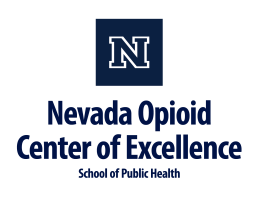
The Good Samaritan Drug Overdose Act of 2015 (Senate Bill 459, Chapter 26, Statutes of Nevada 2015 NRS 453C.120) created various provisions addressing the opiate overdose epidemic that continues to claim over 300 lives per year in Nevada. The law prevents punitive actions against health professionals and any person who administers naloxone or calls 911 to assist someone who may be overdosing on opiates. It also provides immunity to persons seeking medical treatment for an opioid overdose for themselves or someone else.
This presentation will discuss the Good Samaritan (NRS 453.C.150) and Drug Induced Homicide (NRS 453.333) Laws in Nevada including provisions of the laws, immunity under these laws, and how they compare to other state laws, including Delaware and Rhode Island.
Learning Objectives:
By the end of this presentation participants should be able to:
- Understand how the Good Samaritan Law outlines immunity for certain offenses when someone provides medical assistance in the case of an overdose
- List the circumstances to qualify for immunity under the Good Samaritan Law
- Know what the Drug Induced Homicide Law is and how it plays into the Good Samaritan Law.
Presented by: Alissa C. Engler, Chief Deputy Attorney General, Criminal Prosecution Division, Office of the Nevada Attorney General
Continuing Education Units: 0.5 CEUs
This training is approved for continuing education by the boards listed here. It is also approved by the Nevada Certification Board for PRSS and PRSS-S.
Funding for this activity was made possible in whole or in part by the Nevada Department of Health and Human Services (DHHS) Director’s Office through the Fund for a Resilient Nevada, established in Nevada Revised Statutes 433.712 through 433.744. The opinions, findings, conclusions, and recommendations expressed in our courses are those of the author(s) and do not necessarily represent the official views of the Nevada Opioid Center of Excellence or its funders.

